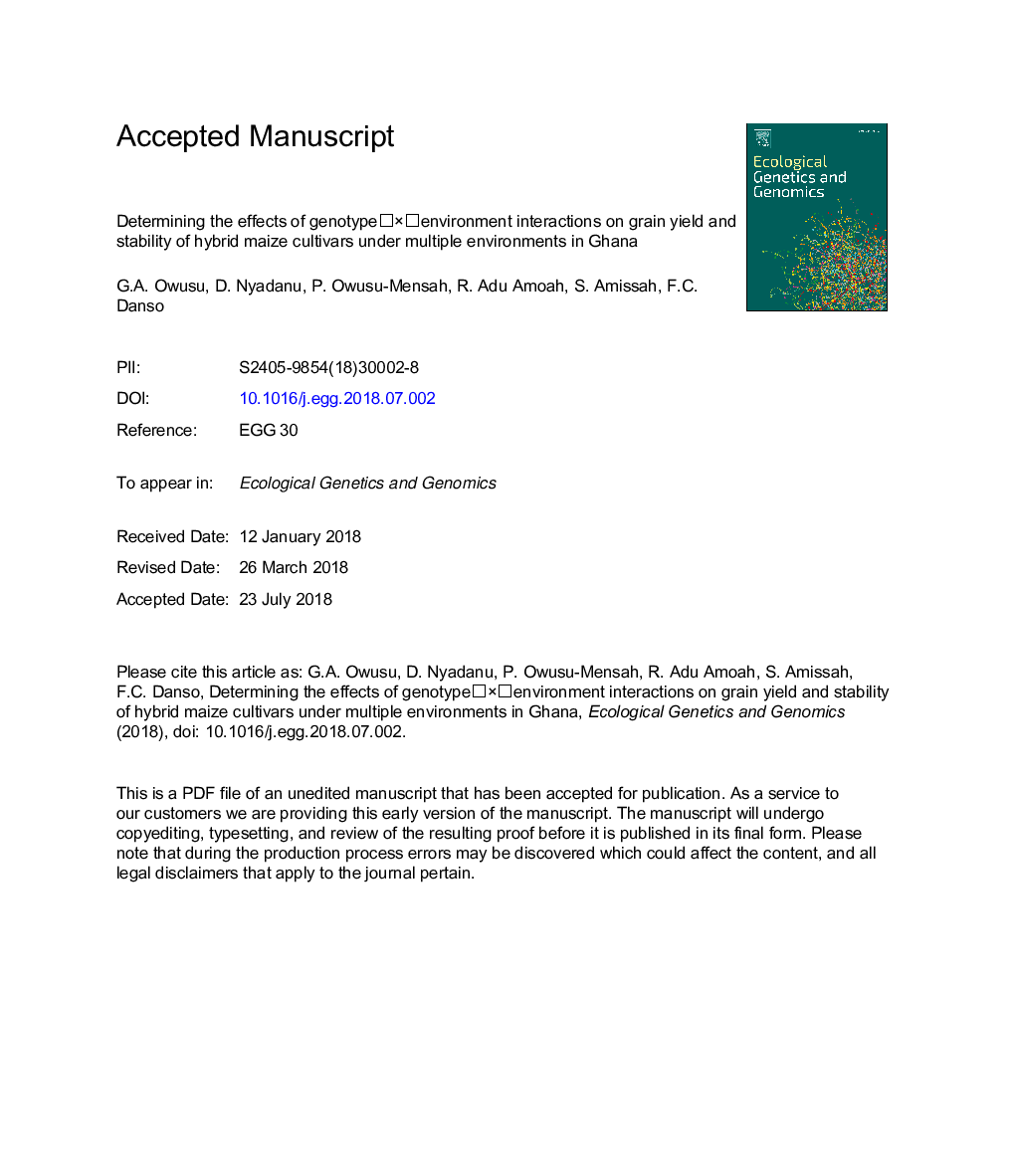| Article ID | Journal | Published Year | Pages | File Type |
|---|---|---|---|---|
| 8644120 | Ecological Genetics and Genomics | 2018 | 24 Pages |
Abstract
Maize (Zea mays L.) is an important cereal crop cultivated across all agro-ecologies in Ghana, but productivity in farmer's fields is generally low (1.7â¯t/ha). The low maize productivity is attributed to the continuous use of low-yielding varieties among others. Hybrid maize varieties have proven to be high yielding than unimproved varieties, therefore, farmers' adoption would reduce the deficit of demand and supply of maize in Ghana. A study was conducted to assess the relative yield performance and stability of 45 extra-early single-cross hybrids. The trial was conducted in the Forest, Forest-Transition and Coastal savannah zones over the main season of 2015. The experiment was laid-out in a randomized incomplete block design with three replications at each location. Data were collected on grain yield (GY) and other agronomic traits for each location. Results showed significant mean squares for environment (E), genotype (G) and Gâ¯Ãâ¯E interaction for GY and other agronomic traits suggesting that the test environments were unique to contribute to the expression of genetic variability of the hybrid genotypes. Hybrids 28 (TZEEI 78â¯Ãâ¯TZEEI 66), 2 (TZEEI 64â¯Ãâ¯TZEEI 61), 18 (TZEEI 66â¯Ãâ¯TZEEI 64) and 41 (TZEEI 94â¯Ãâ¯TZEEI 76) were identified as high yield and most stable under the test environments. Moreover, hybrid 28 was the ideal and most yielding hybrid and should extensively be tested on-farm for consistent yield performance and then released to farmers for commercialization.
Related Topics
Life Sciences
Biochemistry, Genetics and Molecular Biology
Genetics
Authors
G.A. Owusu, D. Nyadanu, P. Owusu-Mensah, R. Adu Amoah, S. Amissah, F.C. Danso,
